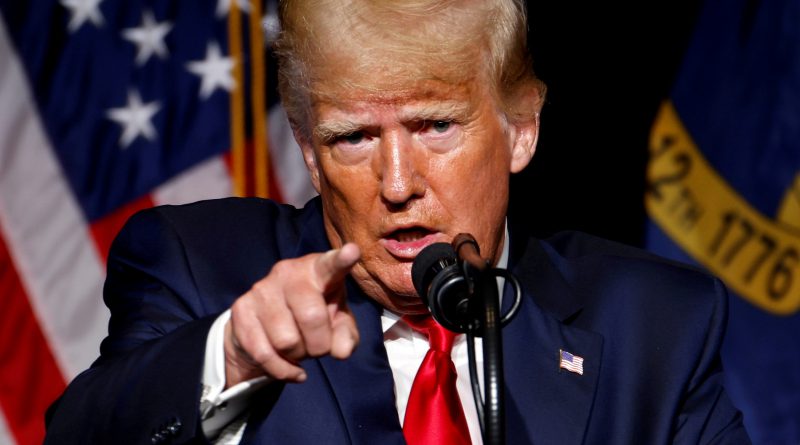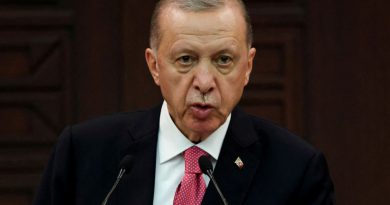Donald Trump Faces Criticism for Xenophobic Comments on Undocumented Immigrants
Durham – Former President Donald Trump, the current frontrunner for the Republican presidential nomination, has once again drawn criticism for his controversial remarks regarding undocumented immigrants. During a campaign event in New Hampshire on Saturday, Trump used language that has been condemned as xenophobic and reminiscent of Nazi rhetoric.
Trump’s comments focused on the issue of migrant crossings at the US-Mexico border, which reached record levels in September. Promising to take a hardline stance on illegal immigration and impose restrictions on legal immigration if reelected, Trump stated, “They’re poisoning the blood of our country.” He further claimed that immigrants from Asia, Africa, and South America were “pouring into our country.”
This is not the first time Trump has used the phrase “poisoning the blood” in reference to immigrants. In a late September interview with The National Pulse, a right-leaning website, he employed the same language, drawing criticism from the Anti-Defamation League. Jonathan Greenblatt, the leader of the organization, condemned Trump’s words as “racist, xenophobic, and despicable.”
Jonathan Stanley, a Yale professor and expert on fascism, expressed concern over the repeated use of such language by Trump. He drew parallels between Trump’s rhetoric and that of Adolf Hitler, who warned against the supposed poisoning of German blood by Jews in his infamous political treatise, “Mein Kampf.” Stanley emphasized the danger of normalizing such dangerous speech and the potential impact it could have on the safety of immigrants in the United States.
In October, Trump’s campaign spokesperson, Steven Cheung, dismissed criticism of the former president’s language as “nonsensical.” Cheung argued that similar language could be found in books, news articles, and on television. At the time of reporting, Cheung had not responded to a request for comment regarding Trump’s recent remarks.
Trump’s divisive rhetoric on immigration has been a hallmark of his political career, and his latest comments have once again ignited a debate over the impact of such language on marginalized communities. Critics argue that it perpetuates harmful stereotypes, fosters division, and undermines the spirit of inclusivity and diversity that many strive to uphold in the United States.
As the 2024 presidential election approaches, Trump’s controversial remarks continue to generate significant attention and scrutiny, both within his own party and among the broader public. The discourse surrounding immigration and the treatment of immigrants remains a deeply contentious issue that will undoubtedly shape the political landscape in the coming months.



